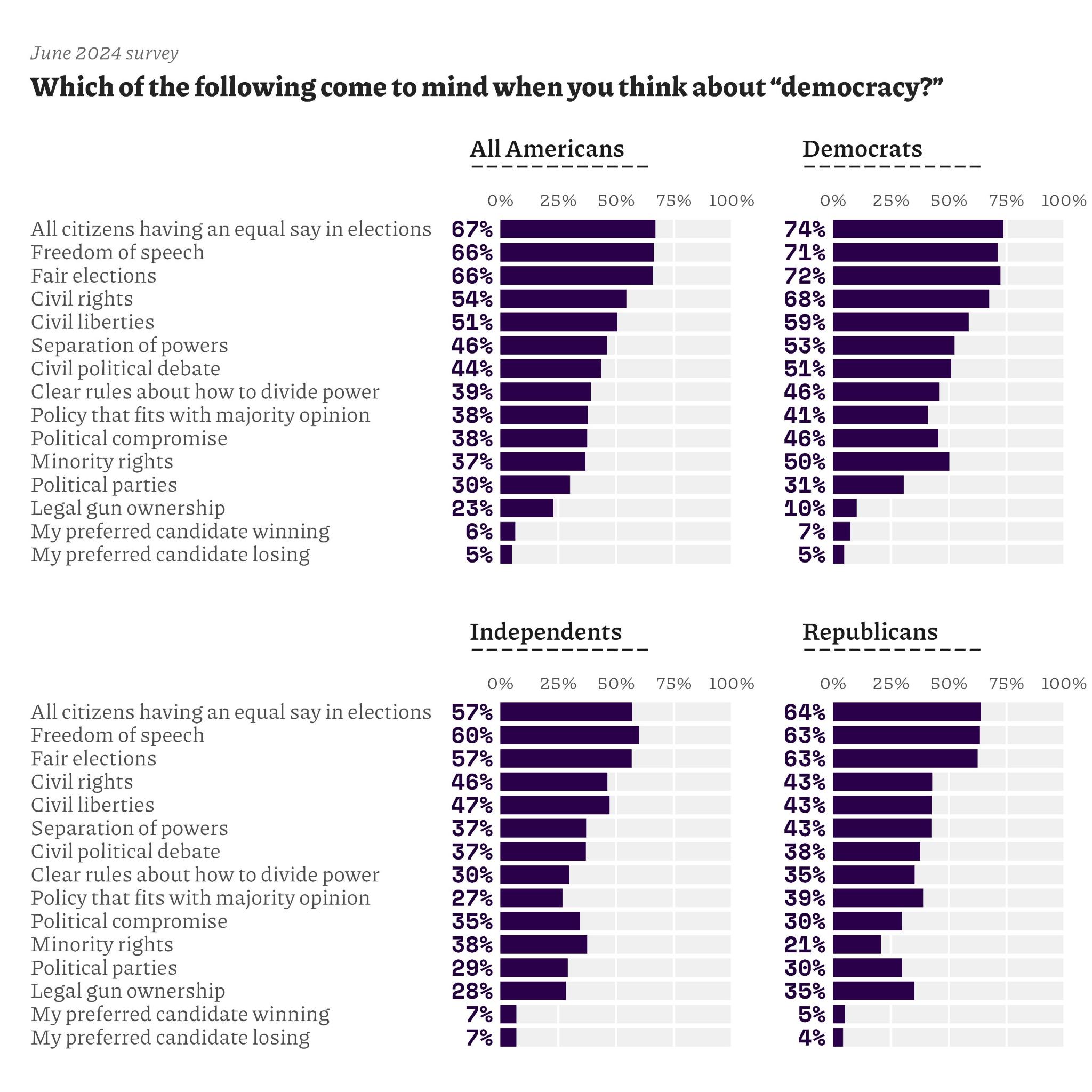New Survey: How Americans Define Democracy
In This Resource
What does democracy mean to you? Democracy is a big idea that Americans with different beliefs understand in many different ways.
States United conducted a survey to understand what people across partisan lines mean when they hear “democracy.” The survey found that most Americans associate democracy with citizens having an equal say and with fair elections—two key parts of States United’s mission. And Americans generally agree on democracy’s core components and have a central feeling about it, with very little variation among respondents who identified as Democrats, Republicans, and Independents.
But Americans think about a lot more than just our system of government when they hear the word “democracy.” People connect the term to everything from civil liberties and political parties to legal gun ownership and political debates. Because of this nuance, it’s important that pro-democracy officials and organizations are specific and clear about what they are focused on when speaking about democracy.

When it comes to democracy, most Americans agree on the core components that define it. A clear majority of people connect democracy to fundamental values like:
- Having an equal say in elections (67%)
- Freedom of speech (66%)
- Fair elections (66%)
- Civil rights (54%)
- Civil liberties (51%)
Americans across the political spectrum generally reject the idea that their preferred candidate winning or losing is central to democracy (6%). However, some central aspects of American democracy are not as top of mind. For example, only 46% of people selected separation of powers—a foundational principle of our system of government.
Interestingly, 64% of people agreed that “policy should only change when at least a majority of Americans support that change.” In comparison, only 38% of respondents connected “policy that fits with majority opinion” to the idea of democracy itself.
These findings demonstrate a broad consensus on the fundamental elements of democracy, with minimal partisan variation. However, they also highlight areas where individuals may hold differing views on what democracy means or need a clearer understanding of its full scope.
The survey involved 1,517 internet interviews with U.S. adults selected from YouGov’s online panel. Participants were interviewed before the election, specifically between June 4 and June 11, 2024. The sample was designed to reflect the demographics of registered voters in the U.S., including gender, age, race/ethnicity, and education. The margin of error for this survey is approximately ±2.8 percentage points, although it may be larger for the analysis of partisan subgroups mentioned earlier.
Note: In keeping with best research practices, we classify independent voters who reported “leaning” toward either the Democratic or Republican parties as partisans. Therefore, we define “independents” as those respondents who professed no partisan attachments.